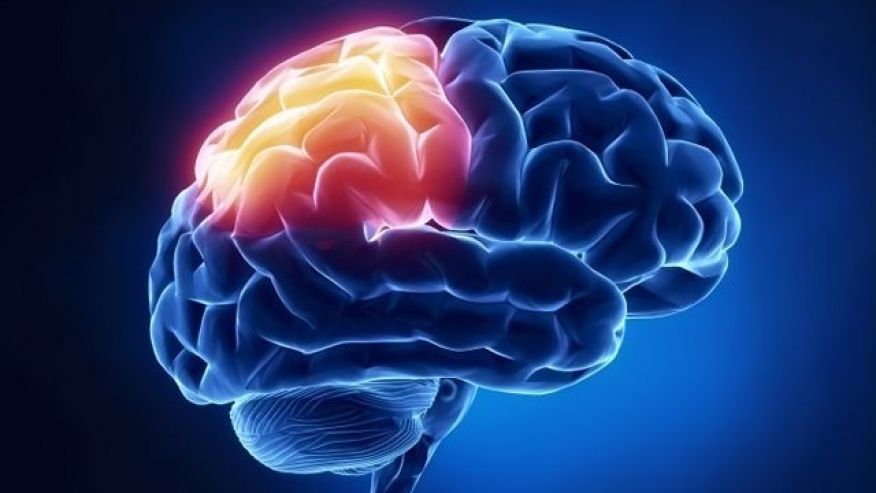Dopamine and Addiction-Their roles

The brain is affected by both genes and environmental factors
Dopamine is neurotransmitter in the brain that plays vital roles in a variety of different behaviors. The major behaviors dopamine affects are movement, cognition, pleasure, and motivation. Dopamine is an essential component of the basal ganglia motor loop, as well as the neurotransmitter responsible for controlling the exchange of information from one brain area to another. However, it is the role that dopamine plays in pleasure and motivation that attracts the most neurobiologists attention.
In certain areas of the brain when dopamine is released it gives one the feeling of pleasure or satisfaction. These feelings of satisfaction become desired, and the person will grow a desire for the satisfaction. To satisfy that desire the person will repeat behaviors that cause the release of dopamine. For example food and sex release dopamine. That is why people want food even though their body does not need it and why people sometimes need sex. These two behaviors scientifically make sense since the body needs food to survive, and humans need to have sex to allow the race to survive. However, other, less natural behaviors have the same effect on one’s dopamine levels, and at times can even be more powerful. Often these behaviors can result in addiction due their effect on dopamine, and that addiction can have negative effects on a person’s well-being. Two of such behaviors are
Dopamine and Addiction-Cocaine
Cocaine is by far the more severe of the two in terms of addiction. Cocaine chemically inhibits the natural dopamine cycle. Normally, after dopamine is released, it is recycled back into a dopamine transmitting neuron. However, cocaine binds to the dopamine, and does not allow it to be recycled. Thus there is a buildup of dopamine, and it floods certain neural areas. The flood ends after about 30 minutes, and the person is left yearning to feel as he or she once did. That is how the addiction begins. With time adaptation builds up due to the fact that the person is consistently behaving in the same way that he or she had the first time. However, the individual cannot, because dopamine is also released when something pleasurable yet unexpected occurs. During the first time, the person expects the effect, thus less dopamine is released, and the experience is less satisfying. This cause explains why gambling releases dopamine.
Many studies have been done which targeted neural response to rewards. The findings were in agreement that when one performed an action repeatedly, and is given a reward randomly, the dopamine levels rises. If the reward is administered for example every four times the action was performed, the dopamine levels remained constant. Whereas when no reward is given dopamine levels dropped. These random rewards can be seen in gambling and since the outcome is based on chance, one does may not know prior if he or she will win. Therefore, if he or she wins, dopamine levels increases. However, unlike cocaine, gambling causes addiction in relatively low levels of participants. This is because Cocaine’s chemical input is much more influential on dopamine levels than gambling’s behavioral input meaning only people whose dopamine levels are low, become addicted to gambling.
Dopamine and Addiction-Variance in dopamine levels
This is may be due to genetics, environment related or a combination of factors. A study concluded that pathological gamblers most often experienced traumatizing experiences when they were younger. Since most people who became addicted to gambling have low dopamine levels, and also that same group usually has endured a traumatic experience, it was concluded the overall dopamine levels can change due to environmental factors. This supports the opinion that both the mind and the brain can change due to environmental factors.
However, another study has discovered that a gene related to dopamine is sported twice as often in pathological gamblers than non-gamblers. This view supports the observation that dopamine levels are genetic. We can therefore come up with two possible observations. Either both genetics and environmental factors effect ones brain anatomy and mind simultaneously, or that environmental factors can affect genes which in turn affect ones brain and mind.
Dopamine and Addiction-Why is risk and reward a trigger for the release of dopamine?
It’s scientifically logical that sex and food release dopamine, because they are essential for life the life of human beings. Risk and reward are not. It is believed that everything happens for a reason; meaning, there must be a scientific explanation for the increase of dopamine levels as a result of risk and reward. Let us look at it this way, that the human race is different from other species on this planet not only by its ability to reason, but also its ability to create and be innovative. Therefore nature dictates that humans be creative and innovative, and for this to happen a person should have some level of satisfaction when one accomplishes an innovation.
To accomplish an innovation one has to take risks. It is risky to try to do something that no other being on earth has ever accomplished. Therefore, there must be a reward other than material that one gets when he or she accomplishes the innovation, otherwise that person would not take the risk. The reward here is the release of dopamine and the feeling of satisfaction. The problem with this process is that not only can one be satisfied after a major risk and accomplishment, but that one can also be satisfied through constant minute risks and accomplishments. Gambling is an example of this.
The feeling of satisfaction that dopamine exhibits are so strong that one can often lose his or her ability to reason in order to achieve satisfaction. It is then the unconscious that takes over and begins to make certain decisions. The brain develops neural circuits that unconsciously assess reward. Since dopamine plays an active role in these circuits, people will act in what they think is in their best interest, when in fact the only interest it satisfies is the release of dopamine. This can be exemplified in gambling where one insists on gambling even though he or she knows that the odds are against them.
This is the case in all casino games, where the games are structured for the house to win. Probability and reason no longer are the most important factors in decision making. The unconscious need for the release of dopamine becomes most important. This supports the observation that the unconscious plays a vital role in decision making.
From this article of dopamine and addiction we can make some fair general observations about the brain that:
- Both a chemical (cocaine) and a behavior (gambling) can have the same effect on the brain.
- The brain is affected by both genes and environmental factors, and that most likely the environmental factors affect genes which affect the brain.
- Dopamine makes humans take risks so that they may achieve greater innovations.
- Through gambling the unconscious is constantly making important decisions.
Dopamine and Addiction-Their roles










